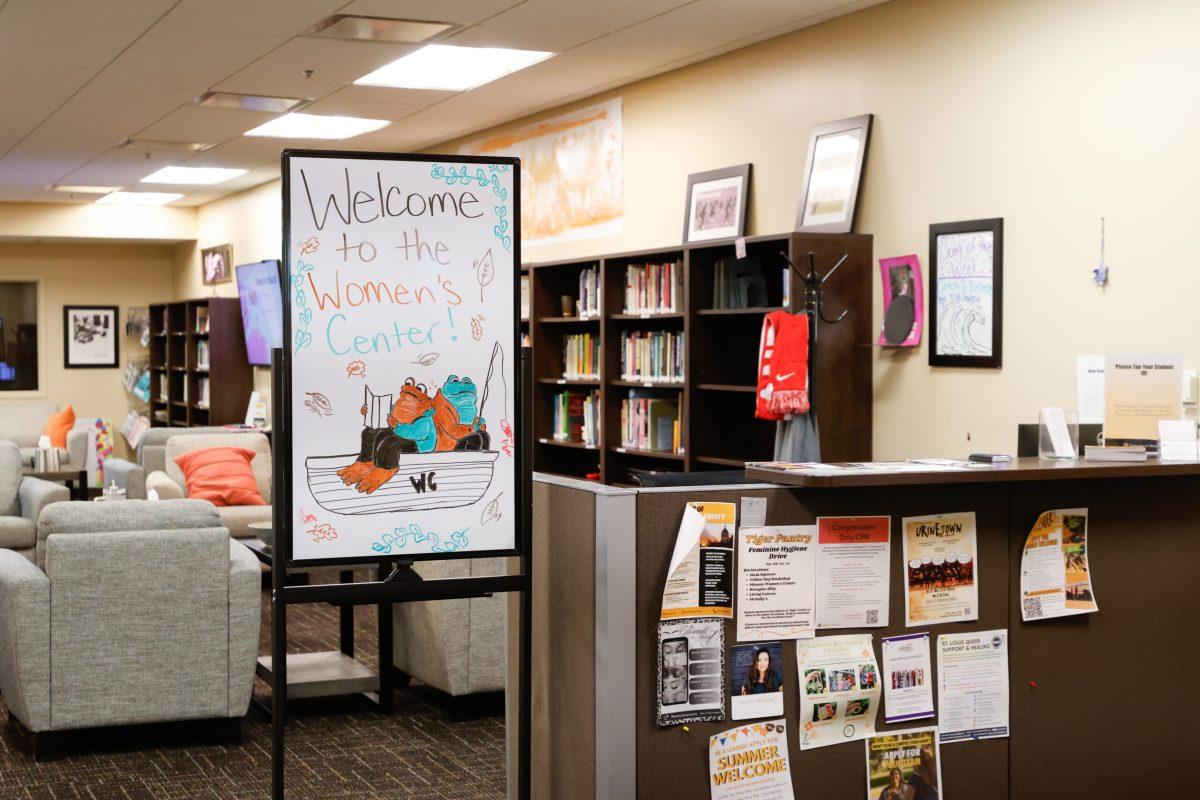
Resource centers provide necessary safe spaces and support for marginalized students at MU
In June 2022, the Supreme Court of The United States overturned Roe v. Wade, a landmark case guaranteeing legal access to abortion, in Dobbs v. Jackson Women’s Health Organization. Despite the fact that 6 out of 10 Americans believe in abortion’s legality, the SCOTUS ruling has drastically limited abortion services across the U.S., including in Missouri, where abortion access is almost nonexistent, even in cases of rape or incest. Additionally, people who can get pregnant were not proportionally represented in the ruling, as four out of the five justices who voted to strip abortion access were cisgender men.
In addition to the overturning of Roe v. Wade, several other legal decisions have drastically impacted students with marginalized identities. Particularly for students of color, the end of race-conscious affirmative action in the 2023 SCOTUS ruling Students for Fair Admissions, Inc. v. Harvard College as well as MU’s recent decision to eliminate its Inclusion, Diversity and Equity division, have affected the scholarships, financial aid and resources available to students. Although preliminary data indicate largely unchanged applicant behavior following the overturning of affirmative action, past studies in states where affirmative action has been banned reported drastic reductions in minority student applications. One could also argue that the recent legal rulings and university decisions reflect a broader political climate that is openly hostile and unsupportive of students with marginalized identities.
I could write several (non-exhaustive) columns about the blatant attacks on marginalized people that persist in the twenty-first century. However, I am not the expert on many of these issues, and I want to narrow my focus to some of the resources available to marginalized students at MU to assess how these services can continue to flourish amidst current legal threats.
One space on campus that I have frequented and believe is doing important work is the Women’s Center. Historically, women’s resource centers have played an important role in providing students with gender-conscious resources like pregnancy tests, counseling and identity-based communities. Women’s centers have also served as spaces for feminist activism against widespread campus issues like sexual violence.
MU Women’s Center Student Support Specialist Sophia Hood, a graduate student at MU, sees the Women’s Center, which is located in the basement of the MU Student Center, as a place where women and LGBTQ+ students can access resources, and make friends.
“I think a big part of our goal is just to be a place for as many students as possible,” Hood said. “I know that a lot of times students come to Mizzou— especially because it’s such a big campus—for sports or specific clubs or specific majors, so sometimes it can be really hard to find friends.”
Hood said that the Women’s Center works with other community and campus-based organizations, including The Center Project, the Multicultural Center, the LGBTQ Resource Center and the Gaines/Oldham Black Culture Center, to provide students with an intersectional experience. She also said the Women’s Center is a space for everyone – including transgender women, non-binary folks, allies and anyone interested in feminism.
“I think it’s very important for students to see themselves in all spaces, especially because intersectionality exists, and you’re going to have multiple identities,” Hood said. “It is very important for women to feel heard, and to feel seen and to come to a place where they can get those resources [and] they can talk to somebody if they do have questions.”
The Women’s Center offers resources like the lounge, which can be reserved for events and used as a study space; the library, which stores over 3,000 books; and recurring events such as “Coffee Tuesdays” and “Stitch ‘N Bitch.” Hood said that in her opinion, the Women’s Center remains an essential component of MU’s campus.
“I hope we’re relevant, and I hope we continue to stay relevant,” Hood said. “But I think we are a much-needed resource on campus for the identities that we serve because this is a place where students come to feel comfortable, to see the same faces every day and to know that it’s a reliable source to get resources from.”
In light of recent attacks on bodily autonomy and the continued oppression of historically marginalized communities, identity-based resource centers remain crucial to students’ safety and well-being across college campuses. Regardless of how those in power attempt to control our bodies and police our existence, we will continue to resist and protect each other through community and solidarity.
Edited by Tierney Kugel [email protected]
Copyedited by Hannah Taylor | [email protected]
Edited by Claire Nguyen and Emilia Hansen | [email protected]
Edited by Annie Goodykoontz | [email protected]